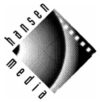(Pronounced “MEW-law”) (n.) Standardized in the ITU G.711 specification, a method of coding eight-bit companded audio with pulse code modulation (PCM) that yields a 72-dB dynamic range. It is used for digital voice channels over telephone lines in North America, Japan, and South Korea. It is not interchangeable with a-law coding, which is used for digital audio over telephone lines in the rest of the world. A converter must be used to translate between these two differently coded PCM voice messages. Compare a-law.
mu-law (mu-law or micro-law)
« BACK TO DICTIONARY INDEX
